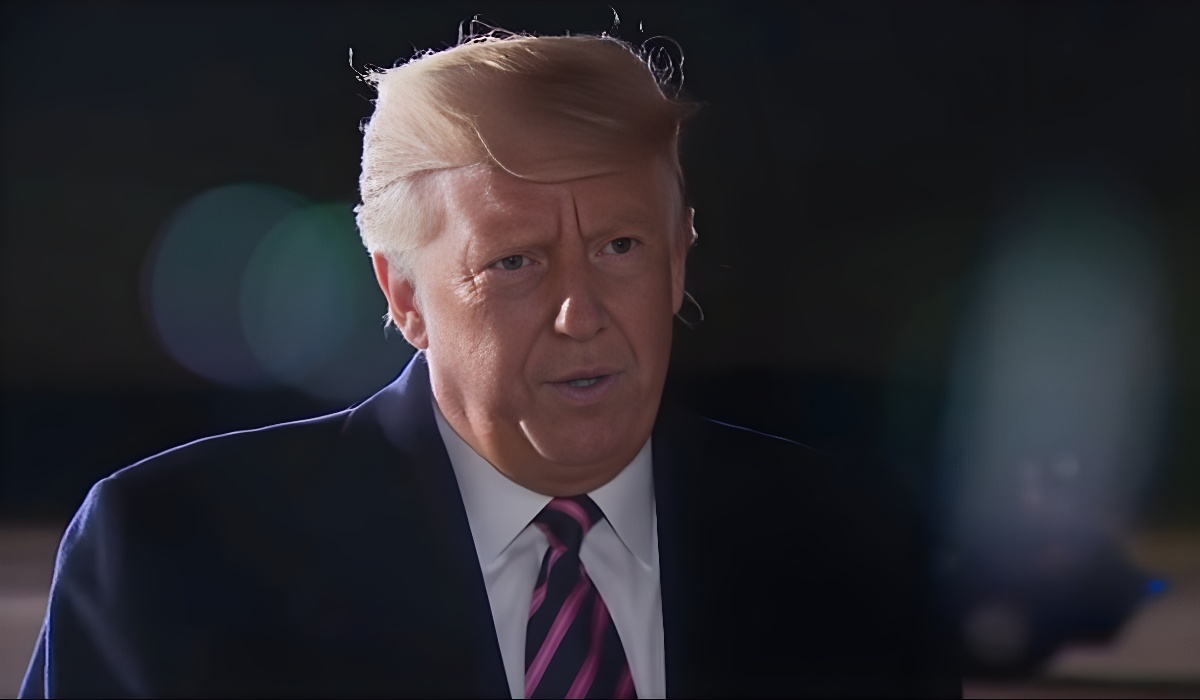On Tuesday, February 6, 2024, a three-judge panel of the U.S. Court of Appeals for the District of Columbia Circuit delivered a consequential ruling in the ongoing legal saga surrounding former President Donald Trump. The court unanimously rejected Trump’s claim of absolute immunity from prosecution in a case linked to his efforts to overturn the 2020 election results, paving the way for the criminal case against him to proceed. This decision, with its far-reaching implications, has ignited a firestorm of debate and analysis, highlighting the complex intersection of law, politics, and accountability in American democracy.
The case in question stems from Special Counsel Jack Smith’s investigation into Trump’s actions leading up to and on January 6, 2021. Smith, appointed by Attorney General Merrick Garland, has indicted Trump on four charges: conspiracy to defraud the United States, obstruction of an official proceeding, making false statements, and inciting an insurrection. These charges relate to allegations that Trump pressured state officials to overturn election results, attempted to obstruct the certification of those results, and incited the mob that stormed the Capitol on January 6th.
Trump’s legal team presented a critical argument: the former president enjoys absolute immunity from criminal prosecution for actions taken within the scope of his official duties. This doctrine, based on precedent and historical practice, aims to protect presidents from frivolous lawsuits that could impede their ability to execute their office effectively. However, the appeals court decisively rejected this claim, stating that “the office of the Presidency does not confer a lifelong ‘get-out-of-jail-free pass.'”
The judges meticulously analyzed the historical basis for presidential immunity, finding it inapplicable to the current circumstances. They emphasized that Trump’s alleged actions – attempting to interfere with election results and incite violence – clearly exceeded the legitimate bounds of presidential authority. In a forceful statement, the opinion declared, “We cannot accept that the office of the Presidency places its former occupants above the law for all time thereafter.”
Furthermore, the court addressed the argument that Trump’s acquittal in his impeachment trial rendered him immune to criminal prosecution. The judges clarified that impeachment and criminal proceedings serve distinct purposes with different standards of proof, making them mutually exclusive avenues for accountability.
The appeals court’s ruling signifies a pivotal moment in American jurisprudence. It reaffirms the principle of equality before the law, suggesting that no individual, regardless of their past office, is beyond the reach of justice. This decision carries potentially significant ramifications for Trump’s legal future, opening the door for his criminal case to proceed in full force.
However, the decision also throws the political landscape into a state of heightened tension. Supporters of the ruling hail it as a crucial step towards upholding the rule of law and ensuring accountability for powerful figures. Conversely, opponents argue it sets a dangerous precedent, potentially weaponizing the legal system for political ends.
Unsurprisingly, the court’s decision has met with mixed reactions. The Democrats, in a measured statement, affirmed the rule of law and expressed confidence in the judicial system. Meanwhile, Republican leaders have criticized the ruling, raising concerns about politicization and selective prosecution.
Trump himself has vehemently denounced the decision, vowing to appeal to the Supreme Court. Should the highest court decline to hear the case, the criminal proceedings against him will move forward in the lower court. This development, coupled with the ongoing civil suits and investigations facing Trump, paints a picture of a legal landscape fraught with uncertainty and potential complications.
The appeals court’s ruling on Trump’s immunity claim marks a significant stage in a multifaceted legal saga. While the decision itself carries weight, its true impact will unfold gradually, shaped by subsequent legal actions, political responses, and public discourse. Questions about the future of the criminal case, the Supreme Court’s potential involvement, and the long-term political ramifications remain unanswered.
One thing, however, is clear: the court’s decision has triggered a profound debate about the boundaries of presidential authority, the limits of the law, and the role of accountability in American democracy. As the legal process unfolds and the political pendulum swings, the nation grapples with the complexities of ensuring justice while preserving the delicate balance of power enshrined in the U.S. Constitution.









